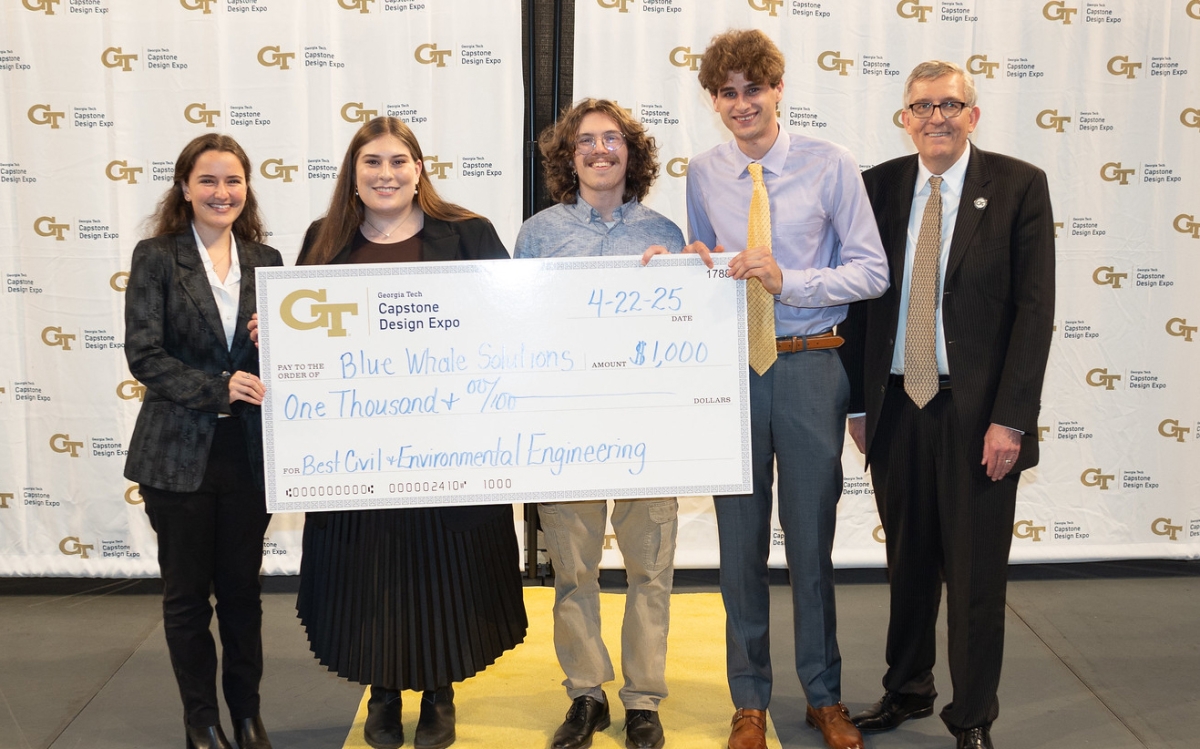
The Blue Whale Solutions team (l to r: Melanie Reveron, Rebecca Chapman, Hudson McGaughey and Will Campbell) holding the big check prize with Karen and John Huff School Chair Don Webster. (Photo by Candler Hobbs)
The Blue Whale Solutions team took home the prize for the best civil and environmental engineering project at the Spring 2025 Capstone Design Expo.
The CEE students won $1,000 for their project, soil vapor extraction for the Velsicol Chemical Corp. (Hardeman County) Superfund Site.
Blue Whale Solutions was one of four civil and environmental engineering teams to compete at the Spring 2025 Capstone Design Expo, held on April 22 at McCamish Pavilion. The teams’ projects ranged from environmental remediation to pedestrian bridge design to dam restoration and sustainable construction.
They were among a record 238 teams of more than 1,300 students that showed off their semester-long projects, which serve as a culmination of their undergraduate studies. The teams, representing four of Georgia Tech’s colleges, competed for more than $15,000 in prize money.
Blue Whale Solutions is comprised of civil engineering major William Caldwell and environmental engineering majors Rebecca Chapman, Hudson McGaughey, and Melanie Reveron.
The students were advised by Professor of the Practice Sharon Just. The project was sponsored by Ramboll and the U.S. Environmental Protection Agency (EPA).
The Velsicol Chemical Corp. Superfund Site is a site on the EPA's National Priority List. Between 1964 and 1973, the Velsicol Chemical Corp. operated a landfill on the site where around 200,000 drums of pesticide manufacturing waste were disposed in trenches. As a result, there are around 10 million pounds of chlorinated volatile organic carbons (cVOCs) on the site.
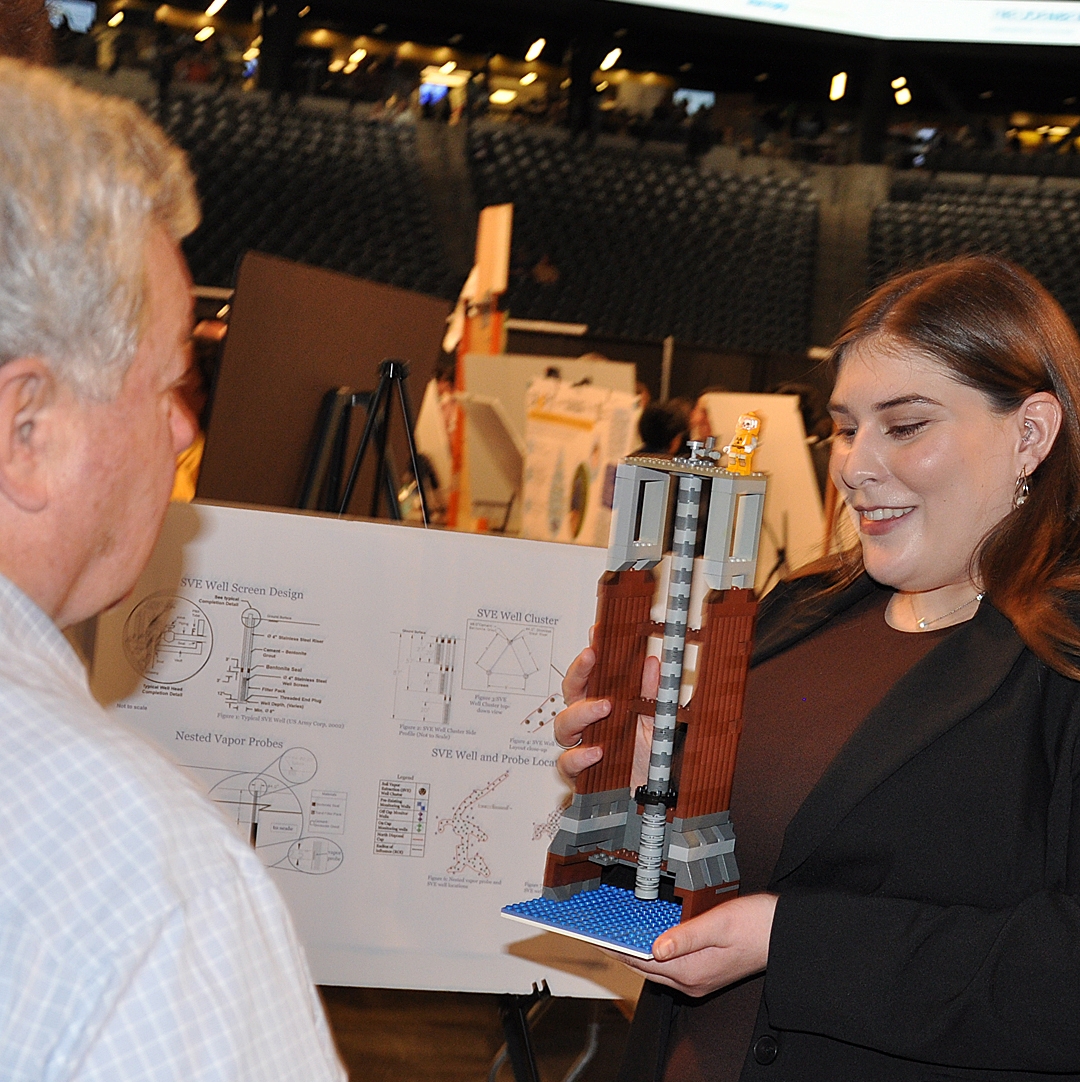
Rebecca Chapman shows a model of the soil vapor extraction system to a Capstone visitor. (Photo by Michael Hunter)
The Blue Whale Solutions team designed a soil vapor extraction system for the largest disposal area on the site. They are preparing a well field layout, both vertically and horizontally, and a treatment system conceptual design. The design includes components, flow, and estimated treatment duration with the remediation goal of reducing the cVOC concentrations by 97%.
Just, the team's advisor, applauded the students for overcoming the challenge of having their site visit canceled due to unexpectedly high levels of organic contaminant encountered at the site during drilling.
“Despite these challenges, the team came together to design all major components for the extraction and treatment system, providing a long-term solution that will not only treat the vadose zone but thereby also reduce contaminant levels in the groundwater,” she said.
The Solar Decathlon team, made up of civil engineering majors Arya Desai, Jordan Glass, Megan Jermak, and Jackie Zong, showcased a plan to expand the Early Learning Scholars daycare care center in Clarkston, Ga. The team prioritized sustainability and energy
efficiency in their design choices for the facility, which serves as a resource for refugee families in the Clarkston community.
The project includes a retrofit of an existing building to add an open event space and the addition of new classroom buildings to expand their current layout. The project includes structural engineering design of the retrofitted timber-frame building, energy and daylight modeling of all new buildings, life cycle assessment of all materials and structures, construction scheduling, and cost estimation.
The project was sponsored by Burns & McDonnell and the students were advised by Professor of the Practice Fred Meyer.
The MACH 4 Civil Design Solutions team’s project featured improvements to Postal Pond at Legacy Park in Decatur, Ga.
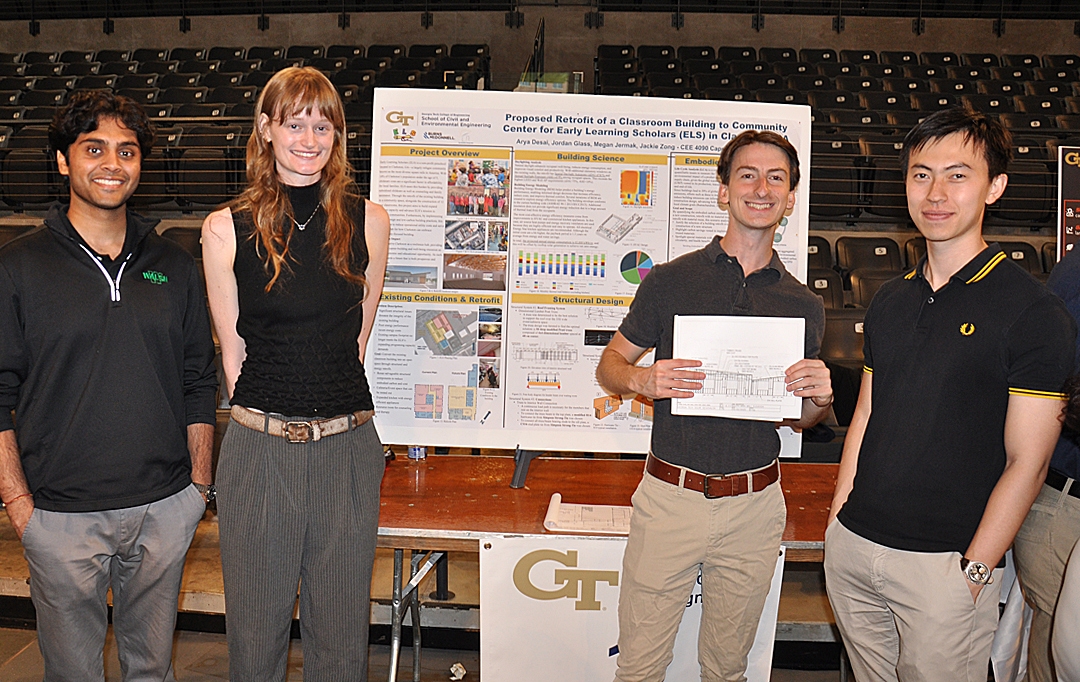
Solar Decathlon (l to r: Arya Desai, Megan Jermak, Jordan Glass, and Jackie Zong) and their Early Learning Scholars expansion project. (Photo by Michael Hunter)
Postal Pond, located within Legacy Park, is experiencing high levels of sediment accumulation as well as a deteriorated earthen dam. The team worked to evaluate the risk associated with the deteriorated dam, develop a solution to restore the dam functionality and safety, and determine the cause of sedimentation within the pond to prevent further accumulation.
The goal of the project is to ensure the safety of communities located within the inundation zone of the pond.
The team, which was advised by Professor of the Practice Sharon Just, includes environmental engineering students Harrison Baro and Alison Rooks along with civil engineering students Caroline Fjeran and Martin Lachev.
The project was sponsored by the U.S. Army Corps of Engineers.
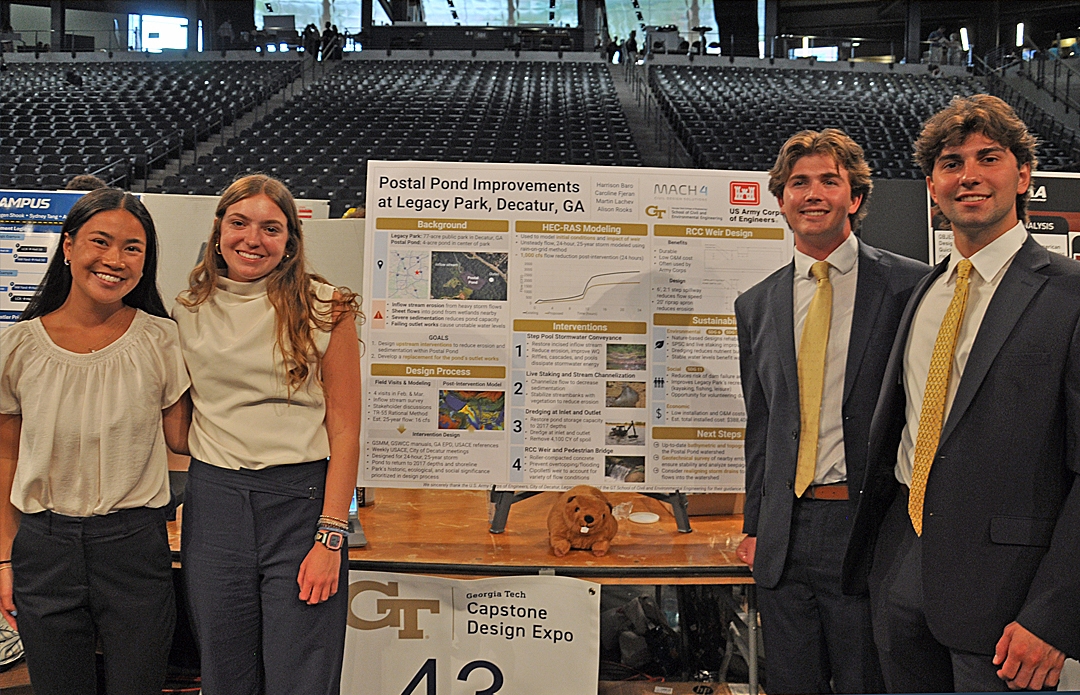
MACH 4 Civil Design Solutions (l to r: Caroline Fjeran, Alison Rooks, Harrison Baro and Martin Lachev) in front of their Postal Pond at Legacy Park project. (Photo by Michael Hunter)
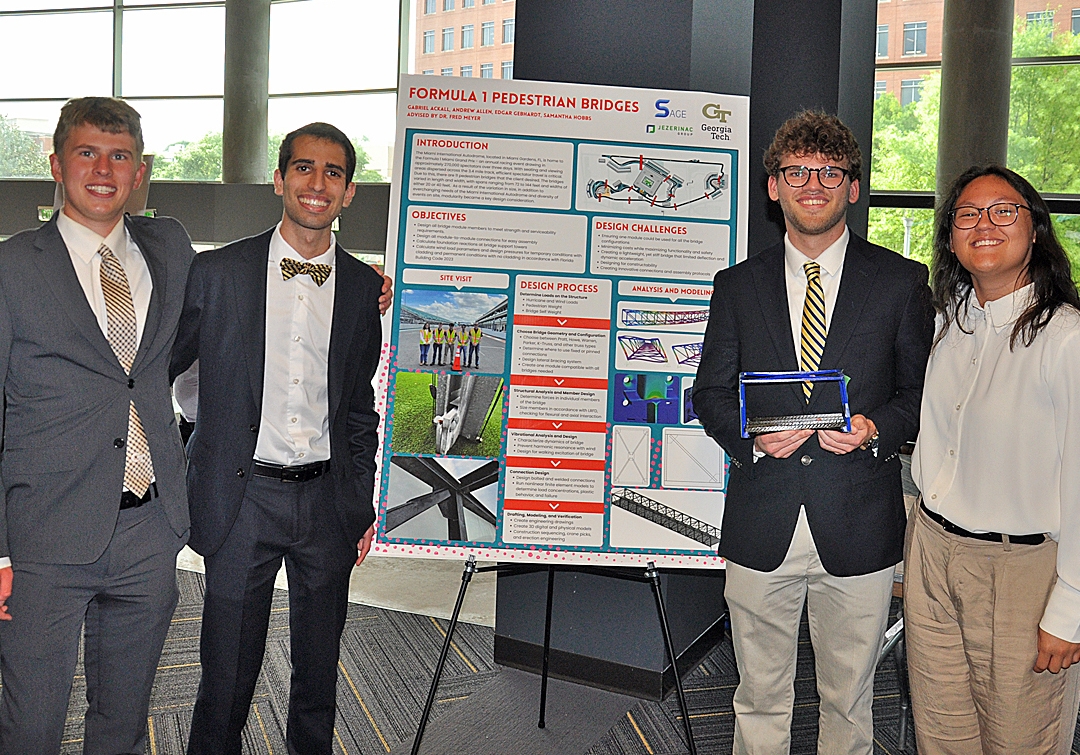
SAGE Structural (l to r: Edgar Gebhardt, Gabriel Ackall, Andrew Allen, and Samantha Hobbs) with their project Formula 1 Pedestrian Bridges. (Photo by Michael Hunter)
SAGE Structural—the team of civil engineering students Gabriel Ackall, Andrew Allen, Edgar Gebhardt, and Samantha Hobbs—presented their project focused on the design, analysis, and erection sequencing of 11 pedestrian bridges for the Miami International Autodrome Formula 1 Track.
The goal of this project is to increase connectivity for spectators on race days. The bridges are modular to allow for easy construction and deconstruction. These bridges are designed to allow for the bridge spans and locations to be changed in the future as the needs of the Miami International Autodrome evolve.
The students were advised by Professor of the Practice Fred Meyer and the project was sponsored by Jezerinac Group.
